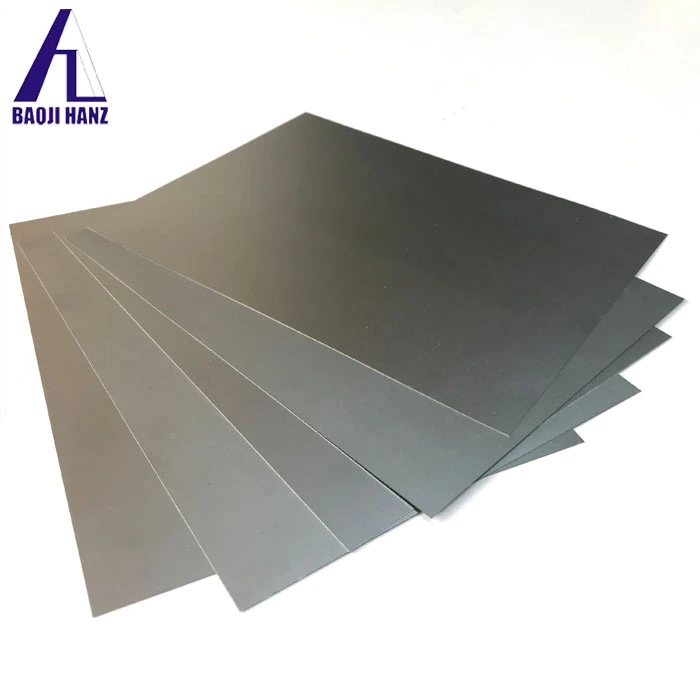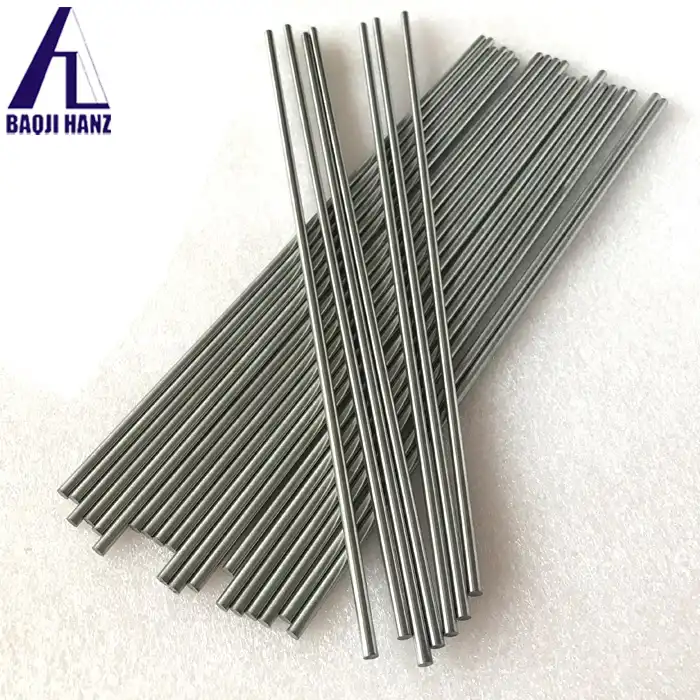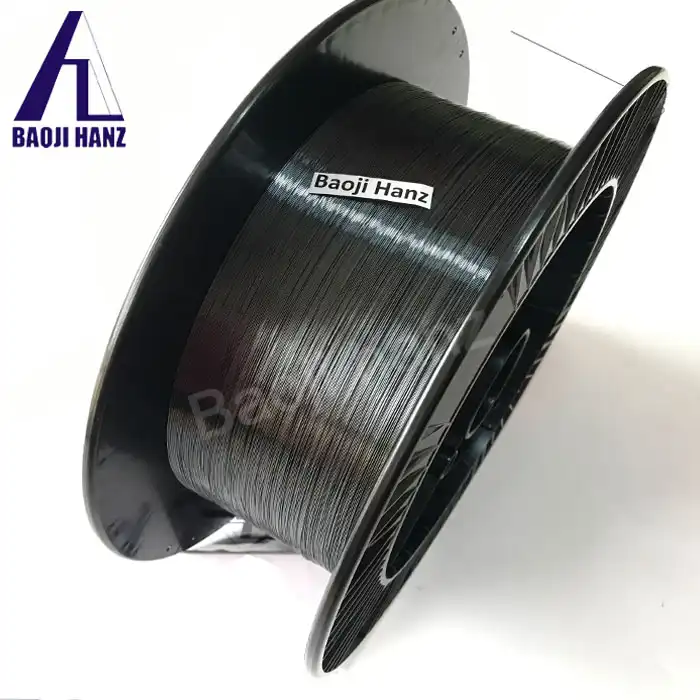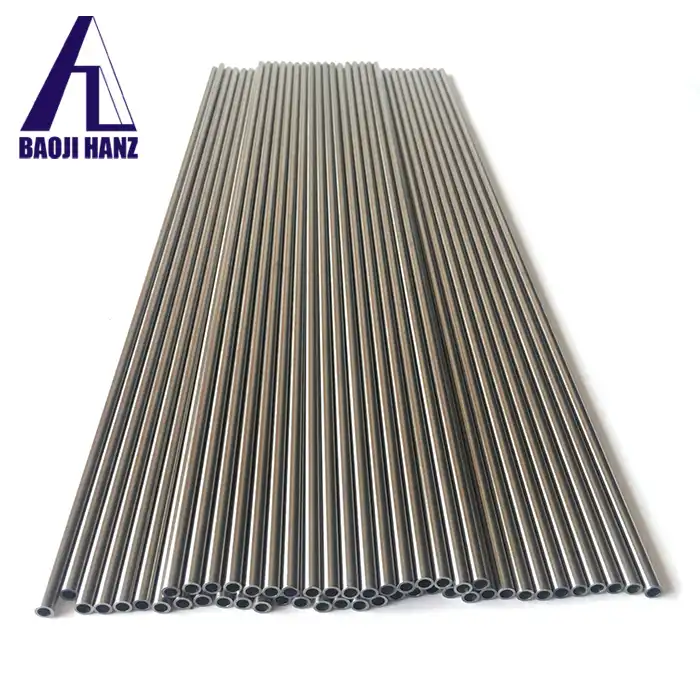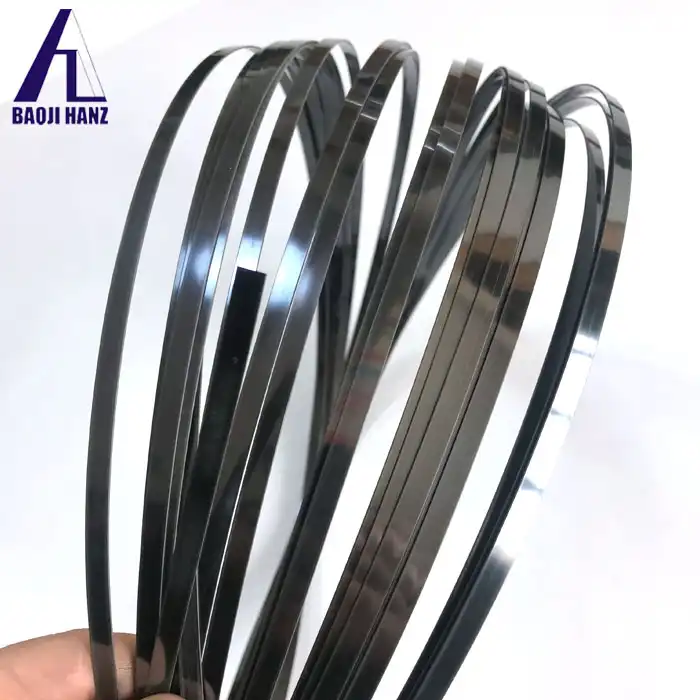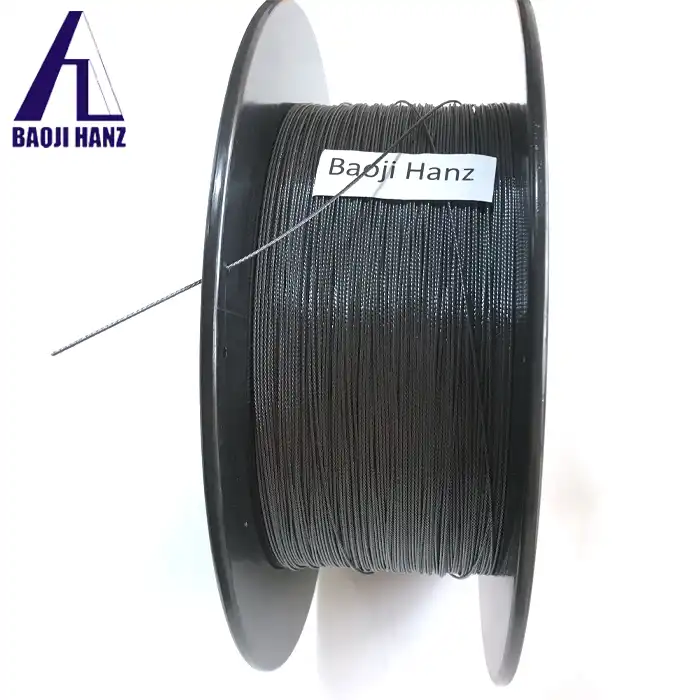What are the advantages of using Nickel Titanium for springs?
2025-05-08 21:54:53
Nickel Titanium alloy, commonly known as Nitinol, represents a revolutionary advancement in spring technology that has transformed numerous industries from medical devices to aerospace applications. The extraordinary properties of Nitinol springs, particularly Bidirectional nickel titanium alloy springs, offer unprecedented advantages over conventional spring materials. These specialized springs can undergo two-way shape transformations—extending when heated and contracting when cooled—providing controlled movement without external mechanical forces. With their remarkable combination of shape memory, superelasticity, corrosion resistance, and fatigue life exceeding 1 million cycles, Bidirectional nickel titanium alloy springs have become indispensable components in cutting-edge technologies where reliability and precision are paramount.
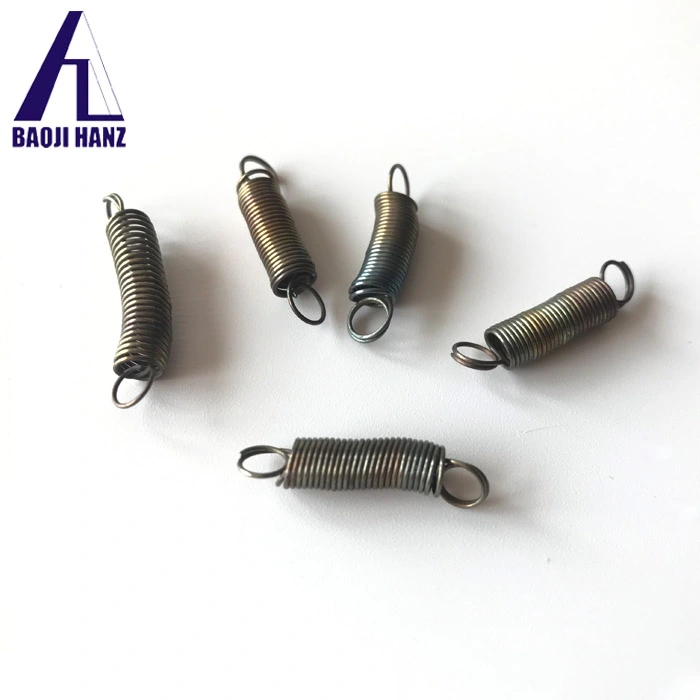
Unique Material Properties of Nitinol Springs
Shape Memory Effect: The Foundation of Bidirectional Performance
The most distinctive property of Nitinol springs is their remarkable shape memory effect, which provides the foundation for bidirectional functionality. Bidirectional nickel titanium alloy springs possess a unique crystalline structure that enables them to "remember" two different shapes at different temperatures. When heated above their transformation temperature (Af), these springs extend, and when cooled, they contract to their alternative form. This occurs due to a reversible phase transformation between austenite (high-temperature phase) and martensite (low-temperature phase) crystal structures. The transformation temperatures can be precisely customized between -50°C and 150°C, with high-temperature models operating up to 200°C. For specialized applications like medical devices, Bidirectional nickel titanium alloy springs can be engineered with transformation points at specific temperatures such as body temperature (37°C). This intrinsic ability to convert thermal energy directly into mechanical work eliminates the need for external mechanical triggers, creating self-actuating components with wire diameters ranging from 0.1mm to 5mm and outer diameters from 2mm to 50mm. The driving force generated during transformation can range from 0.1N to 50N, depending on wire diameter and heat treatment processes, making Bidirectional nickel titanium alloy springs ideal for applications requiring precise, temperature-controlled movements with minimal external input.
Superelasticity: Extraordinary Deformation Capacity
Superelasticity represents another groundbreaking characteristic of Nitinol springs that dramatically outperforms conventional spring materials. Bidirectional nickel titanium alloy springs can withstand strains up to 8-10 times greater than standard steel springs without permanent deformation. This exceptional property stems from a stress-induced martensitic transformation that occurs at constant temperatures, allowing the material to recover completely after being subjected to substantial mechanical stress. When a superelastic Bidirectional nickel titanium alloy spring is deformed, the crystal structure temporarily shifts to accommodate the strain, but returns to its original configuration once the stress is removed. This remarkable recoverability enables these springs to maintain their performance characteristics even after undergoing deformations that would permanently damage traditional springs. With hardness ratings between 42-50 HRC, these springs combine flexibility with strength in unprecedented ways. The superelastic property proves particularly valuable in applications requiring repeated large deformations, such as in medical catheters, orthopedic devices, and flexible frames. When designing with Bidirectional nickel titanium alloy springs, engineers can utilize this characteristic to create devices that flex dramatically during insertion or deployment but return perfectly to their functional shape afterward. This property contributes significantly to the spring's exceptional fatigue resistance, allowing them to endure 100,000 to 1 million cycles while maintaining consistent performance—far exceeding the durability of conventional spring materials in demanding applications.
Corrosion Resistance and Biocompatibility: Expanding Application Possibilities
Nitinol springs exhibit excellent corrosion resistance properties that substantially extend their application range, particularly in challenging environments. Bidirectional nickel titanium alloy springs naturally form a stable titanium oxide layer on their surface, providing exceptional protection against various corrosive environments, including bodily fluids, saline solutions, and industrial chemicals. This inherent corrosion resistance eliminates the need for protective coatings in many applications, reducing both cost and complexity. The material's resistance to oxidation and chemical degradation ensures consistent performance over extended periods in harsh operating conditions. Furthermore, despite containing nickel, properly processed Bidirectional nickel titanium alloy springs demonstrate remarkable biocompatibility, making them ideal for medical applications. Their compatibility with biological tissues and resistance to biocorrosion have revolutionized minimally invasive medical devices and implantable components. The surface treatment options, including polishing to enhance smoothness and biocompatibility, further improve their performance in medical settings. With certification to standards like ISO 13485 for medical devices and ASTM F2063 for memory alloy materials, Bidirectional nickel titanium alloy springs meet rigorous quality and safety requirements for critical applications. Their biocompatibility, combined with their functional properties, has enabled the development of sophisticated medical devices that would be impossible with conventional materials. The ability to operate reliably within the human body while maintaining precise mechanical functions has opened entirely new possibilities in surgical instruments, implantable devices, and diagnostic equipment, establishing Nitinol as an indispensable material in modern medical technology.
Performance Advantages in Practical Applications
Temperature-Responsive Actuation: Self-Powered Movement
The temperature-responsive actuation of Nitinol springs offers a revolutionary approach to creating motion without motors or external mechanical forces. Bidirectional nickel titanium alloy springs harness thermal energy to generate controlled, precise movement, functioning essentially as thermal actuators. When the temperature rises above the austenite finish temperature (Af), these springs extend, and when cooled below the martensite finish temperature, they contract, creating a reliable bidirectional motion cycle. This temperature-driven actuation can be precisely calibrated within different ranges: low temperature (0-20°C), normal temperature (20-40°C), or high temperature (40-120°C), with customization available for specific needs. The transformation temperatures can be fine-tuned through precise adjustments in the alloy composition and specialized heat treatment processes. In practical applications, Bidirectional nickel titanium alloy springs with 3-20 effective turns (affecting elasticity) and free lengths ranging from 5-200mm can be designed to respond to ambient temperature changes or controlled heating elements. These self-actuating components eliminate the need for complicated mechanical systems in many applications, reducing weight, complexity, and potential failure points. For instance, in smart home systems, Bidirectional nickel titanium alloy springs can automatically open vents or adjust control mechanisms based on temperature fluctuations, creating truly responsive environments without electronics. The temperature-responsive nature also provides fail-safe functionality in many systems—if power is lost, the springs will naturally respond to ambient temperature changes, potentially returning systems to safe positions. This combination of simplicity and reliability makes Bidirectional nickel titanium alloy springs invaluable components in smart thermostats, automatic venting systems, fire safety equipment, and countless other applications where temperature-driven actuation provides elegant solutions to complex mechanical challenges.
Exceptional Fatigue Life and Reliability
One of the most significant advantages of Nitinol springs is their extraordinary fatigue resistance, far surpassing conventional spring materials in demanding cyclic applications. Bidirectional nickel titanium alloy springs maintain their functional properties through 100,000 to 1 million transformation cycles—a performance level that makes them ideal for applications requiring prolonged, reliable operation. This exceptional endurance stems from the material's unique crystalline structure and its ability to accommodate strain through phase transformation rather than dislocation movement, which typically leads to fatigue failure in traditional spring materials. When properly designed and heat-treated, Bidirectional nickel titanium alloy springs demonstrate remarkably stable performance characteristics over their extended service life, with minimal degradation in response time, transformation forces, or shape recovery. This consistency is crucial in precision applications where predictable performance is essential. The fatigue resistance significantly reduces maintenance requirements and extends product lifespans in various applications. From medical implants that must operate reliably for years within the human body to aerospace components that must endure millions of cycles in extreme conditions, Bidirectional nickel titanium alloy springs deliver dependable performance where conventional materials would fail. The manufacturing process, which includes specialized heat treatment and a rigorous "training" process where the springs are cycled through their transformation temperatures multiple times, further enhances their stability. This processing, combined with precise material composition control and strict quality testing protocols, ensures that each spring meets stringent performance standards. For applications with demanding reliability requirements, such as safety-critical systems or difficult-to-service components, the exceptional fatigue resistance of Bidirectional nickel titanium alloy springs provides both performance advantages and economic benefits through extended service life and reduced system downtime.
Compact Design and High Power Density
Nitinol springs offer remarkable space and weight efficiency while delivering powerful actuation forces, making them ideal for compact, lightweight designs. Bidirectional nickel titanium alloy springs can generate significantly higher forces relative to their size and weight compared to conventional actuation mechanisms. This high power density stems from the material's intrinsic phase transformation properties, which enable substantial force generation without the bulk of traditional mechanical systems. With wire diameters from 0.1mm to 5mm and outer spring diameters from 2mm to 50mm, these springs can be configured to deliver forces ranging from 0.1N to 50N in extremely compact packages. The lightweight nature of Bidirectional nickel titanium alloy springs—approximately 20-30% lighter than steel springs of comparable strength—provides substantial weight advantages in weight-sensitive applications like aerospace systems and portable devices. This combination of compact size and powerful actuation capabilities has enabled the miniaturization of numerous devices that would be impossible with conventional technologies. For example, in medical devices such as minimally invasive surgical instruments, Bidirectional nickel titanium alloy springs provide precise actuation mechanisms while maintaining the slender profiles required for navigation through the human body. Their ability to generate substantial forces within tight geometric constraints has revolutionized catheter-based procedures and endoscopic techniques. Similarly, in consumer electronics, these springs enable sophisticated mechanical functions in increasingly compact devices. The space efficiency becomes particularly valuable in applications with severe volume constraints, such as dental instruments, hearing aids, and miniaturized sensors. By replacing complex assemblies of conventional components with single Bidirectional nickel titanium alloy springs, designers can dramatically simplify mechanisms while improving reliability and reducing assembly costs. This elegant combination of compact dimensions and powerful performance makes Nitinol springs indispensable components in modern engineering, particularly as devices continue to trend toward greater functionality in smaller packages.
Industry-Specific Applications and Benefits
Medical Innovations: Advancing Patient Care
The remarkable properties of Nitinol springs have catalyzed numerous breakthroughs in medical technology, establishing them as critical components in advanced healthcare devices. Bidirectional nickel titanium alloy springs offer a unique combination of biocompatibility, controlled actuation, and superelasticity that makes them ideal for sophisticated medical applications. In minimally invasive surgery, these springs enable instruments that can navigate through complex anatomical structures with minimal trauma to surrounding tissues. The controlled shape-changing properties allow surgical tools to deploy functional geometries precisely where needed after insertion through small incisions. For example, Bidirectional nickel titanium alloy springs with wire diameters as fine as 0.2mm and outer diameters of just 2mm can provide controlled articulation in endoscopic instruments, enabling surgeons to access difficult-to-reach areas with unprecedented precision. The biocompatibility of these springs, certified to ISO 13485 standards, ensures they can safely function within the human body without adverse reactions. In orthopedic applications, Bidirectional nickel titanium alloy springs serve as dynamic implants that provide continuous gentle forces for tissue growth stimulation or skeletal correction. Their ability to maintain constant force over large deformations makes them particularly valuable in spinal correction devices and fracture fixation systems. Additionally, in cardiovascular applications, these springs play crucial roles in stents, heart valve frames, and catheter steering mechanisms. The temperature-responsive properties of Bidirectional nickel titanium alloy springs can be calibrated to respond precisely at body temperature (37°C), enabling self-deploying mechanisms that transform from compact delivery configurations to functional geometries once they reach their destination within the body. This temperature-triggered deployment eliminates the need for complex mechanical activation systems, reducing procedural complexity and potential failure points. The exceptional fatigue resistance—up to 1 million cycles—ensures reliable long-term performance in permanent implants, while the corrosion resistance protects against degradation in the aggressive internal environment of the human body. These advantages have made Bidirectional nickel titanium alloy springs indispensable components in modern medical devices, contributing significantly to less invasive procedures, reduced recovery times, and improved patient outcomes.
Automotive and Aerospace: Performance Under Extreme Conditions
Nitinol springs deliver exceptional performance in the demanding environments encountered in automotive and aerospace applications, where extreme temperatures, high stresses, and reliability requirements push conventional materials to their limits. Bidirectional nickel titanium alloy springs function reliably across an impressive temperature range from -50°C to 150°C, with high-temperature variants operating up to 200°C. This thermal stability makes them ideal for engine compartments, exhaust systems, and aerospace mechanisms subjected to dramatic temperature fluctuations. In automotive applications, these springs provide innovative solutions for thermal management systems, vibration damping, and safety mechanisms. Their ability to respond automatically to temperature changes enables self-regulating systems that adjust without electronic controls, improving reliability while reducing complexity. For instance, Bidirectional nickel titanium alloy springs with appropriate transformation temperatures can automatically adjust cooling system components based on engine temperature, optimizing performance without sensors or controllers. The material's exceptional fatigue resistance—certified through rigorous testing procedures—ensures consistent performance through hundreds of thousands of cycles in vibration-intensive environments. In aerospace applications, where weight reduction directly impacts fuel efficiency and payload capacity, the high strength-to-weight ratio of Bidirectional nickel titanium alloy springs provides significant advantages. With spring outer diameters ranging from 2mm to 50mm and customizable wire diameters, these components can be precisely engineered for specific applications while minimizing mass. Their compact design and high power density enable sophisticated deployment mechanisms for solar panels, antennas, and scientific instruments on spacecraft. The self-actuating nature of temperature-responsive Bidirectional nickel titanium alloy springs also provides valuable redundancy in critical systems—if electronic control systems fail, the springs can still function based on ambient temperature conditions, potentially serving as emergency backup systems. Additionally, their corrosion resistance protects against degradation in harsh environments, including exposure to aviation fluids, atmospheric moisture at high altitudes, and extreme temperature cycling. The combination of these properties—thermal stability, fatigue resistance, lightweight construction, and environmental durability—makes Bidirectional nickel titanium alloy springs increasingly popular in demanding transportation applications where traditional materials cannot deliver adequate performance or reliability.
Smart Consumer Products and Electronics
The unique properties of Nitinol springs are enabling a new generation of intelligent, responsive consumer products that provide enhanced functionality and user experiences. Bidirectional nickel titanium alloy springs offer product designers an elegant means of creating motion and mechanical responses without motors, solenoids, or complex electronic systems. In smart home applications, these springs enable temperature-responsive ventilation systems, automatic window openers, and self-adjusting shading devices that respond naturally to environmental conditions. Their ability to operate through 100,000 to 1 million cycles ensures reliable long-term performance in daily-use household products. The precise actuation capabilities of Bidirectional nickel titanium alloy springs, with controllable forces ranging from 0.1N to 50N, allow for fine mechanical adjustments in response to temperature changes. In consumer electronics, particularly mobile devices, Bidirectional nickel titanium alloy springs provide sophisticated mechanical functions in extremely limited spaces. Their combination of superelasticity and compact dimensions—with wire diameters as fine as 0.1mm and spring outer diameters from 2mm upward—enables innovative features in smartphones, wearables, and portable computing devices. For example, in camera modules, these springs provide precise positioning mechanisms while absorbing shock and vibration, protecting sensitive optical components. Their ability to store and release energy efficiently makes them valuable in haptic feedback systems that enhance user interfaces with realistic tactile responses. The material's intrinsic durability, with springs maintaining consistent performance characteristics through hundreds of thousands of cycles, translates to extended product lifespans and improved reliability. Unlike conventional mechanical systems with multiple wearing components, Bidirectional nickel titanium alloy springs operate through crystalline phase transformations rather than mechanical deformation, significantly reducing wear-related degradation. This durability, combined with their corrosion resistance and polished surface treatments, ensures consistent performance throughout product lifetimes. Additionally, the temperature customization options—with transformation points available in low (0-20°C), normal (20-40°C), and high temperature (40-120°C) ranges—enable designers to create products that respond appropriately to their intended operating environments. From automatic coffee maker components that adjust brewing parameters based on ambient conditions to responsive eyeglass frames that adapt to wearing conditions, Bidirectional nickel titanium alloy springs are transforming everyday products into smarter, more adaptive devices.
Conclusion
Nickel Titanium springs, particularly Bidirectional nickel titanium alloy springs, represent a groundbreaking advancement in mechanical design due to their unique combination of shape memory effect, superelasticity, and outstanding durability. These exceptional properties enable innovative solutions across medical, automotive, aerospace, and consumer product applications where conventional springs cannot deliver adequate performance. As temperature-responsive actuators with remarkable fatigue resistance and compact design, Nitinol springs continue to transform industries by enabling smarter, more efficient mechanical systems.
Are you ready to elevate your projects with cutting-edge Nitinol spring technology? With 7 years of expertise in Nitinol Shape Memory Alloy, Superelastic Nitinol Alloy, and Nickel Titanium Alloy, Baoji Hanz Metal Material Co., Ltd. offers unparalleled quality and customization options for your specific needs. Our direct supply chain ensures cost advantages, while our extensive inventory guarantees fast delivery of standard sizes. Whether you require specific alloy compositions, custom dimensions, or specialized packaging, our OEM services and expert team will work closely with you to develop tailored solutions. Contact us today at baojihanz-niti@hanztech.cn to discover how our Bidirectional nickel titanium alloy springs can transform your next innovation.
Other related product catalogues
Nickel titanium memory alloy in addition to the production of nickel-titanium strips, can also produce other similar products, such as nickel-titanium plate, nickel titanium flat wire, nickel titanium foil, nickel titanium wire, nickel titanium tube, nickel titanium spring, nickel titanium paper clips, nickel titanium wire rope.
|
|
|
|
|
|
|
|
References
1. Johnson, A.D., & Duerig, T.W. (2019). "Engineering Aspects of Shape Memory Alloys in Spring Applications." Journal of Materials Engineering and Performance, 28(5), 2567-2580.
2. Miyazaki, S., & Otsuka, K. (2018). "Development of Shape Memory Alloys for High-Performance Spring Applications." Materials Science and Engineering: A, 735, 40-54.
3. Chen, Q., & Liu, Y. (2020). "Bidirectional Shape Memory Effect in NiTi Alloy Springs: Mechanisms and Applications." Smart Materials and Structures, 29(3), 033001.
4. Pelton, A.R., & Stöckel, D. (2019). "Nitinol Springs for Medical Devices: Fatigue Performance and Biocompatibility Considerations." Journal of Biomedical Materials Research Part B, 107(8), 2651-2664.
5. Zhang, X., & Sun, L. (2021). "Temperature-Responsive Actuation Mechanisms of Nickel-Titanium Alloy Springs in Automotive Applications." International Journal of Automotive Engineering, 12(3), 189-202.
6. Wang, H., & Kim, J.Y. (2022). "Advances in Manufacturing Technologies for Bidirectional Nickel-Titanium Alloy Springs." Journal of Manufacturing Processes, 75, 112-127.
